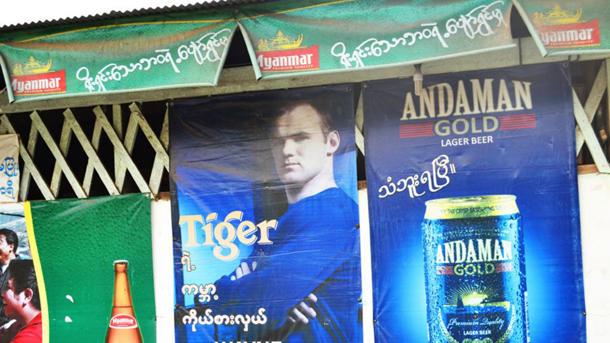LONDON—Manchester United’s pain at losing the Premier League title to Manchester City might be softened by internal research claiming the club remains the most followed in world football.
United found its fan base has doubled to 659 million—almost a tenth of the world’s population—since the last survey five years ago with 325 million alone in Asia.
The research was carried out before the end of a season in which United failed to win a trophy for the first time since the American Glazer family completed their takeover of the club in 2005.
The record 19-time English champions remain confident their global backing will not whither despite the emergence of fierce local rival City as a force backed by Abu Dhabi wealth.
United was about a minute away from retaining the trophy earlier this month before City scored deep into stoppage time in its season finale to end a 44-year league title drought. United also exited the lucrative Champions League in the group stage, having reached the previous season’s final.
“The club has been through periods, as recently as the year before last, when we were in a very similar situation (only winning the League Cup) and that is sport,” United commercial director Richard Arnold said on Tuesday inside the club’s London offices where 80 people work on the commercial operation.
“One of the things that you love about sport is its unpredictability and the uncertainty. And you look at this season—going through all 38 games, all the way past injury time—and the uncertainty it generates.
“That intensity of rivalry and the uncertainty over success deepens the strength and emotion of our fans, deepens the passion they have for the club and contributes to building the fan base.”
Those fans aren’t fickle, according to Arnold.
“It’s a myth to say that football support is transient,” he said. “Who you support changes less than who you are married to.”
The survey that estimated United has 659 million fans out of 1.6 billion football followers overall was extrapolated from the responses from 54,000 people in 39 countries. A similar survey in 2007 indicated that United had 333 million fans, based on 27,000 responses.
Almost 90 percent of United’s fans are now in emerging markets, with 325 million alone in Asia—twice as many as Barcelona in the region, United claims in the findings produced by market research firm Kantar.
United also claims to have 173 million followers in Africa and the Middle East, 90 million in Europe and 71 million in the Americas, including 34 million in the United States.
“Market research of this scale is unusual in sport,” Martin Sorrell, chief executive of advertising giant WPP Group, said in a statement provided by United. “A comprehensive piece of consumer insight like this will give the Reds the knowledge they need to stay ahead of the competition.”
The research was conducted with on-line and face-to-face interviews between June and August 2011 as United started exploring a partial flotation on Singapore’s stock exchange that is on hold due to turbulent market conditions.
“I’m not here to speculate on financial structures,” Arnold said.
The growth in commercial revenue, solidifying United’s status as English football’s biggest moneymaker, helps to soften the impact of a 423 million-pound ( US $663 million) debt resulting from the Glazer family takeover in 2005.
In the first three months of 2012 alone, commercial revenue rose 15 percent year-on-year to 27 million pounds ($43 million) and exceeded match-day revenue, including ticket sales.
United is in the first season of a unique training kit sponsorship deal with express delivery and freight firm DHL, which is worth around 10 million pounds ($16 million) a year. The kit is now the fourth-highest selling worldwide.
Also helping to offset the drop in revenue from the early European exit, the club has sold mobile rights individually to 44 countries, while clinching country-specific deals, including selling branded motorcycles in Thailand.
United was also recently ranked football’s most valuable club, at $2.24 billion, for an eighth year in a row by Forbes magazine.
















